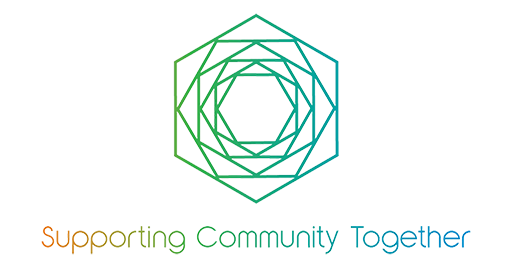
Enhancing Workplace Inclusion for Neurodivergent Individuals
Supporting Success Through Accommodation
Congratulations if you are neurodivergent or have neurodivergent staff on your team! Recognizing neurodiversity in the workplace is an essential step toward creating an inclusive, productive, and affirming environment. Accommodations are not just about making things easier; they are about enabling everyone to work at their best by providing the tools, settings, and support they need to succeed.
In this blog, we will explore the benefits of accommodations for neurodivergent individuals and highlight practical steps that organizations can take to foster an inclusive, disability-affirming environment. Whether you are an employer, a colleague, or neurodivergent yourself, the following information can provide a pathway to improved workplace success.
Understanding Neurodiversity and Strength-Based Support
A disability-affirming workplace recognizes that differences in how people think, process information, and relate to others are not deficits. These differences are what make each person unique and valuable to an organization. For neurodivergent individuals—whether they have Autism, ADHD, or other neurological differences—workplace accommodations can help them thrive by aligning work expectations with individual strengths.
Psychoeducation plays a key role in creating understanding and compassion. Educating teams about neurodivergence can dispel myths, reduce stigma, and pave the way for empathy and collaborative problem-solving. Neurodiversity-affirming training helps teams view accommodations as tools for fostering growth, rather than as special treatment.
Common Accommodations: Tools for Noise, Focus, and Time Management
Accommodations can vary depending on the needs of the individual, but they generally aim to reduce barriers that hinder work performance.
- Noise Control:
For many neurodivergent employees, controlling noise levels can make a significant difference. Options such as noise-canceling headphones, earplugs, or white noise machines can create a quieter and more comfortable work environment. Relocating desks to quieter areas or providing sound-absorbing paneling also helps reduce distractions. Providing a “Do Not Disturb” sign on the office door, with an invitation to reach out via email or text, can further protect focus time. - Focus and Time Management:
Neurodivergent individuals often benefit from visual aids and structured time management tools. Large, easy-to-read clocks, digital calendars with automatic reminders, and personal timers can help with staying on task and managing deadlines. Some may also prefer a buddy system, where a coworker can offer reminders or collaborate on difficult tasks. Flexibility with breaks and deadlines is important, as symptoms like time blindness or executive dysfunction can make rigid timelines more challenging. In this regard, acknowledging that lateness or requests for deadline extensions are related to disability, not lack of effort, can create a more understanding workplace. - Memory Support:
Memory challenges, common in neurodivergent individuals, can be mitigated with simple changes in communication. Offering meeting debriefs in writing, sending email summaries of important tasks, or incorporating visual aids like task flowcharts help keep things on track. Using shared digital notes or creating templates for frequently used documents is another effective way to support employees in organizing their work.
Improving Organization and Productivity
Organization challenges can be a common hurdle for neurodivergent individuals, but digital and physical systems can help maintain order. Offering digital filing systems, organization products (such as filing cabinets or desk organizers), or scheduling regular tidying times can support staying organized. Professional organizers or consultants may also be hired to assist in developing customized systems to match the individual’s needs.
To improve productivity, consider offering dual monitors, setting up workspaces to reduce physical clutter, and using templates or progress notes to track project milestones. Encouraging collaboration sessions, where neurodivergent employees can brainstorm or receive feedback from colleagues, is also a highly effective accommodation for tackling complex projects.
Physical Accommodations and Office Layout
Not all accommodations are related to time and focus management. Physical accommodations are equally important. Ergonomic chairs, standing desks, and modified break schedules are common examples of workplace modifications that improve comfort. Neurodivergent individuals may also benefit from “fidget toys” or stress-relief objects that allow for self-regulation during meetings or tasks. Additionally, creating rest or quiet spaces can serve as a sensory retreat, especially when stress or sensory overload becomes overwhelming.
For employees with physical disabilities, further accommodations might include wheelchair-accessible desks, adaptive technology (e.g., ergonomic keyboards or communication devices), and accessibility enhancements in office layouts, such as accessible restrooms or seating arrangements.
Making a Request: Navigating the Process
Making accommodation requests should be a straightforward process, free of stigma or barriers. Employees should feel empowered to request accommodations at any point in their employment, whether they disclosed their neurodivergence at the time of hire or not. Organizations need clear policies outlining the steps for requesting accommodations, and they should communicate whether a doctor’s note or diagnosis is required.
Importantly, accommodations should be viewed as fluid—what works for one individual may not work for another, and needs may change over time. Regular check-ins between employees and supervisors can ensure that accommodations remain effective and are adjusted as necessary.
Conclusion: Supporting a Diverse Workforce
In creating a neurodiversity-affirming workplace, accommodations are essential for supporting the success of neurodivergent individuals. By embracing flexibility and offering tailored solutions, organizations not only demonstrate inclusivity but also unlock the full potential of their team members. Diversity is strength, and by providing the right tools, employers can foster an environment where everyone, regardless of neurotype, can contribute meaningfully and thrive.
The key to success lies in understanding, empathy, and proactive accommodation, ensuring that every employee feels valued and equipped to succeed.



